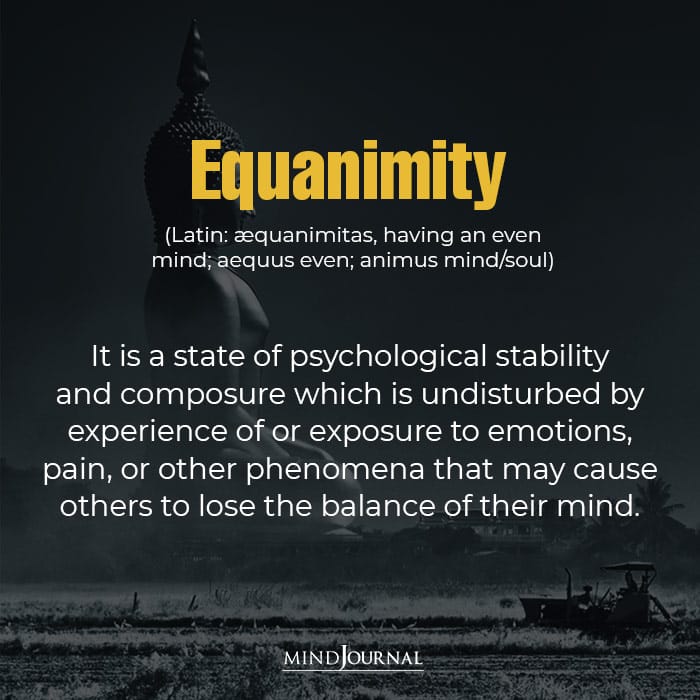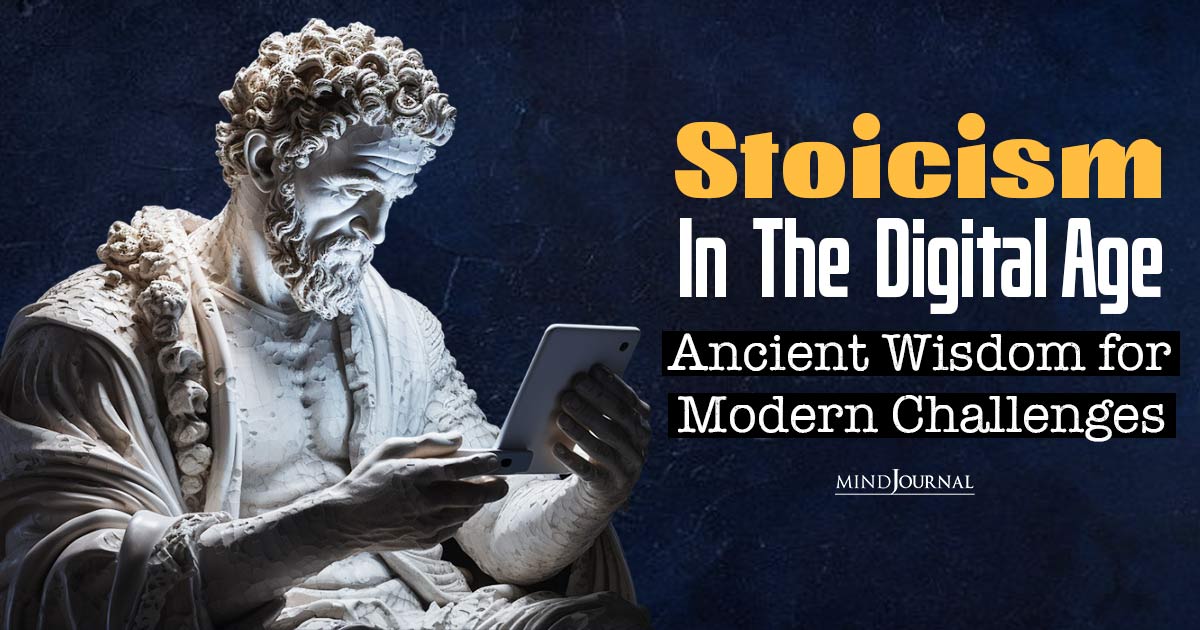In a world filled with endless notifications, constant digital distractions, and information overload, how can we find inner calm and contentment? The ancient philosophy of Stoicism may hold the answers we’re searching for. Let’s find out how to be a modern day stoic and apply stoicism in the digital age.
What is Stoicism?
Stoicism is an ancient Greek philosophy that emphasizes living in accordance with reason and virtue. The Stoics believed that the key to a good and meaningful life lies in accepting the moment as it presents itself, by not worrying about factors outside of our control.

As a modern day stoic, I’ve found that understanding Stoicism and its principles can be an invaluable guide for navigating the challenges of our hyper-connected, fast-paced digital age. Stoicism’s timeless wisdom provides a roadmap for cultivating tranquility, resilience, and clarity of mind – qualities that are more important than ever in our turbulent times.
Related: What Does It Mean To Be A Stoic? 19 Common Stoic Personality Traits And Characteristics
Understanding Stoicism: The Basics
So how can this 2,000 year old philosophy help you find peace and purpose in the 21st century? To know that we need get a clear understanding of the three pillars of Stoicism:
1. Virtue ethics
Stoics believed that living a virtuous life, in accordance with reason and nature, is the path to eudaimonia (human flourishing). Virtues like wisdom, courage, justice, and temperance were emphasized. Virtue is the highest good.
2. Cosmopolitanism
Stoics saw themselves as “citizens of the world,” with a duty to all of humanity. They recognized a universal human community bound by reason and shared moral values. So living ethically and with integrity should be our primary aim.
3. Resilience
Stoics aimed to cultivate an inner calm and equanimity in the face of life’s challenges. By focusing on what is within our control, they sought to avoid destructive emotions and maintain a tranquil state of mind.
As reason guides us to virtue. We should strive to view the world objectively and make decisions based on logic rather than emotion. We don’t control external events, only our judgments and actions. We can’t always control what happens to us, but we can control how we respond.
The most famous Stoic philosophers include Zeno of Citium, Epictetus, Seneca, and Marcus Aurelius. Their writings, compiled in works like Meditations and Discourses, provide a comprehensive framework for living a good life. As a modern day stoic, I’ve found these ancient teachings to be remarkably relevant and applicable to the unique challenges we face in the digital age.
Let’s explore how understanding Stoicism and its principles can provide guidance and solace in our turbulent times.
Stoicism in the Digital Age
In many ways, the modern world poses threats to our mental well-being that the Stoics could scarcely have imagined. The constant barrage of news, social media, and digital stimuli can leave us feeling anxious, distracted, and overwhelmed.

Information overload, endless comparisons to the highlight reels of others’ lives, and the pressure to be “always on” can make it incredibly difficult to maintain focus, perspective, and inner peace. The Stoics offer timely wisdom for navigating these treacherous waters.
One of the core Stoic principles is the distinction between what is within our control and what is not. As modern day stoics, we must learn to let go of the areas of life that are beyond our influence – the actions of others, the state of the world, the “digital noise” that surrounds us. Instead, we must turn our energy inward, focusing on what we can control: our own judgments, decisions, and responses.
Related: 10 Healthy Ways To Get Through Difficult Times (Insights From Stoic Philosophy)
Epictetus, one of the great Stoic philosophers, wrote: “The key is to keep company only with people who uplift you, whose presence calls forth your best.”
Understanding Stoicism in the digital age helps us realize that in our age of social media and omnipresent digital connections, this advice is more crucial than ever. As a modern day stoic, you must be discerning about the people, communities, and information sources you allow to occupy your mental space.
Just as a cluttered physical environment can drain our energy, a cluttered digital landscape can deplete our cognitive and emotional resources. By practicing digital minimalism and curating your online experiences, you can create the mental spaciousness necessary for clarity, focus, and inner calm.
The Benefits of Stoicism
Cultivating a Stoic mindset offers a range of profound benefits that are especially valuable in our modern, fast-paced world. Here are some of the key ways Stoicism can enhance our well-being:
1. Increased resilience and ability to handle stress
Stoicism teaches us to view challenges as opportunities for growth, rather than as threats. By reframing adversity, we can develop the mental fortitude to weather life’s storms with equanimity.
As a modern day stoic, I’ve found that when I’m faced with a stressful situation, I’m able to take a step back, assess the factors within my control, and respond with clarity and purpose rather than panic or paralysis. This resilience has been invaluable in navigating the uncertainties and upheavals of our times.
2. Greater peace of mind and emotional regulation
Stoicism encourages us to let go of unhelpful desires, fears, and judgments that create unnecessary suffering. By cultivating a mindset of acceptance and focusing our energy on what’s truly important, we can experience more consistent inner calm and contentment.
In a world that bombards us with endless distractions and causes for worry, the Stoic practice of focusing on what’s within our control has been a lifeline. As a modern day stoic, I’ve found that I’m able to experience greater equanimity in the face of life’s ups and downs, and respond to both positive and negative events with more clarity and balance.
3. Increased focus, productivity, and decision-making abilities
By minimizing distractions and maintaining a clear, rational perspective, Stoicism can enhance our cognitive capacities. When we’re not constantly pulled in different directions by emotional impulses and external stimuli, we can channel our energy into meaningful work and thoughtful decision-making.
In our age of constant connectivity and information overload, the Stoic virtues of focus and clarity are invaluable. As a modern day stoic, I’ve found that by cultivating presence of mind and filtering out non-essential distractions, I’m able to work more productively, make wiser choices, and ultimately achieve greater fulfillment and life satisfaction.
4. A deeper sense of purpose and meaning
Stoicism in the digital age encourages us to align our actions with our values, and to view our lives through the lens of virtue and the greater good. This can imbue our existence with a profound sense of meaning and significance, even in the face of life’s challenges.
Related: Be Like Water: Bruce Lee’s Philosophy Of Resilience
In a world that can sometimes feel cynical, fragmented, and devoid of greater purpose, the Stoic emphasis on living with integrity and contributing positively to the world has been a source of profound inspiration and motivation for me as a modern day stoic.
By shifting my focus away from external markers of success and towards ethical conduct and service, I’ve been able to find deeper fulfillment and a stronger sense of meaning.

How to Use Stoicism for Modern Life
So how can we, as modern day stoics, integrate the timeless wisdom of Stoicism into our 21st century lives? Here are some practical ways to apply Stoic principles to enhance your life in the modern world:
1. Distinguish what is in your control vs. what is not.
Stoics taught that we should only concern ourselves with what is within our power to influence or change. Make a habit of identifying the things you can control (your thoughts, actions, responses) versus external circumstances you cannot control. Focus your energy on the former.
2. Practice negative visualization
Stoics recommended regularly contemplating the potential loss of the things and people we value. This helps cultivate gratitude for what we have and prepares us to handle adversity with equanimity. Spend a few minutes each day visualizing yourself without your job, home, relationships, etc. This is how to use Stoicism for modern life.
3. Reframe challenges as opportunities
When faced with difficulties, Stoics would ask “what is the virtue to be practiced in this situation?“ As a modern day stoic, you should view obstacles as a chance to develop wisdom, courage, justice, or temperance, rather than something to be avoided or resented.
5. Embrace a simple lifestyle
Stoics prized frugality and detachment from material possessions. Limit your consumption, declutter your living space, and find joy in the essentials. This cultivates the Stoic virtue of self-sufficiency and helps you practice Stoicism for modern life.
6. Examine your impressions and impulses
Stoics believed our emotions and behaviors are shaped by the judgments and interpretations we place on events. Pause before reacting, question your initial impressions, and consciously choose how to respond.
7. Allocate time for self-reflection
Set aside time each day for journaling, meditation, or simply contemplating your life and values. This Stoic practice of self-examination can reveal opportunities for growth and help you stay aligned with your principles.
8. Cultivate a wider perspective
Stoics often pondered their place in the grand scheme of the cosmos. Expanding your frame of reference beyond your immediate concerns can foster humility, equanimity, and a greater sense of purpose.
As a modern day stoic, I’ve found that a regular meditation practice has been transformative in cultivating self-awareness. By grounding myself in the present moment, I’m better able to navigate the turbulence of daily life with clarity and poise.
Related: What Is The Main Idea Of Existentialism? Exploring The Philosophy Of Individual Freedom And Choice
By integrating these Stoic exercises and mindsets into your daily life, you can develop the wisdom, resilience, and virtue to navigate the challenges of the modern world with greater clarity and fulfillment.

Takeaway
Stoicism was an ancient Greek philosophy that emphasized living virtuously, accepting one’s fate, and focusing on what is within one’s control. While Stoicism originated over 2,000 years ago, many of its core tenets can be quite applicable and beneficial in the modern world.
In an era defined by information overload, relentless connectivity, and pervasive uncertainty, the enduring wisdom of Stoicism for modern life offers a powerful antidote. By cultivating the Stoic virtues of wisdom, justice, courage, and temperance, we can reclaim agency and resilience in the face of modern life’s complexities.
Ultimately, the Stoic focus on reason, self-control, and living in harmony with nature provides a time-tested framework that can help us navigate the complexities of modern life with more clarity, purpose, and wellbeing.
While we may not be able to achieve the Stoic sage’s level of tranquility, incorporating Stoicism in the digital age into our daily lives can be a powerful path to greater resilience and fulfillment.
Frequently Asked Questions (FAQs):
1. How to be Stoic in a modern world?
Focus on what is within your control, practice mindfulness, cultivate self-discipline, and maintain a calm and rational perspective.
2. Is Stoicism relevant in modern society?
Yes, Stoicism’s emphasis on virtue, resilience, and living in harmony with nature remains highly applicable today.
3. How could you use Stoicism in your daily life today?
Prioritize your values, manage emotions, accept what you cannot change, and approach challenges with reason and equanimity.










Leave a Reply